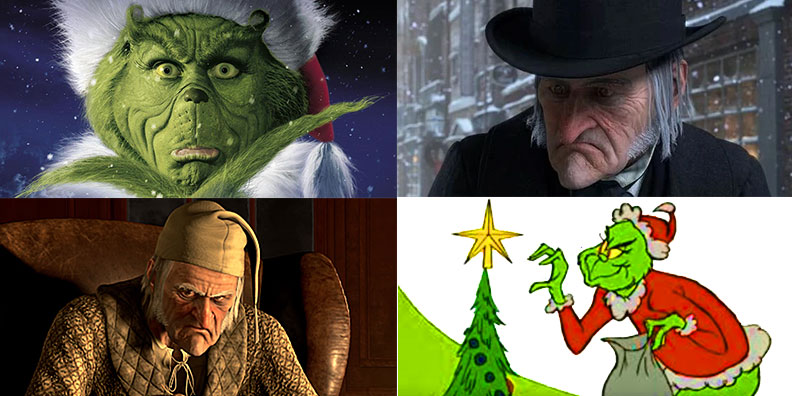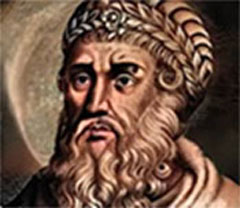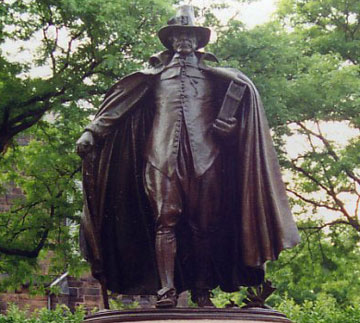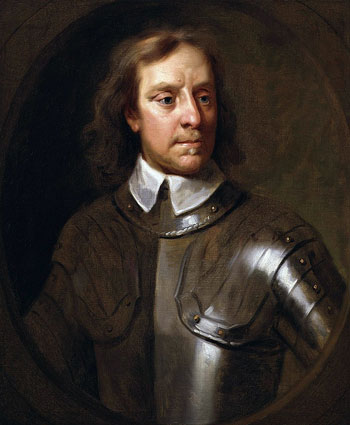
- Christmas Weblog
- Christmas Past
Christmas '23 Christmas '22 Christmas '21 Christmas '20 Christmas '19 Christmas '18 Christmas '17 Christmas '16 Christmas '15 Christmas '14 Christmas '13 Christmas '12 Christmas '11 Christmas '10 Christmas '09 Christmas '08 Christmas '07 Christmas '06 Christmas '05 Christmas '04 Christmas '03 Christmas '02 Christmas '01 Christmas '00 Christmas '99
- Christmas Present
- Christmas Yet to Come
Not so with the guys pictured above or with the very first Christmas hater, either. He hated Christmas for what it might become. The very first Christmas hater was none other than Herod the Great (c. 72–c. 4 BCE), who as soon as he heard the good news feared his job might be at stake. How Republican of him.
The guys who tipped Herod off were the three Magi who had come to him for directions, according to the gospel of Matthew. Really, just how wise could these wise guys have been? They couldn't foresee the threat what the very notion of Jesus might represent to a guy like Herod? This was the original "King of the Jews," the Roman-designated "client king" of Judea, the Israelite kingdom that included Jerusalem and Bethlehem, just west of the Dead Sea.
After he heard of the Magi's change in course and eventually calmed down, Herod tried to kill all the children under the age of two in the area, an event modern Christians venerate as the "Massacre of the Innocents." Beyond the occasional display of homicidal proclivity, Herod is generally regarded by history as a fairly competent ruler, for a guy who'd just started his own dynasty, and a fairly ambitious builder of temples and other stuff.

Biblical scholars today tend to discount Mathew's account of the Massacre of the Innocents, citing a paucity of corroborating historical support. But as Donald Rumsfeld once wistfully observed, absence of evidence is not necessarily evidence of absense. Perhaps the incident was of too small a scale to draw the attention of the few historical scribes on the beat in those days. If the "area" Herod focuced on was limited to Bethlehem proper (pop. c 200 at the time) the loss of male juvenile life might have numbered somewhere in the neighborhood of 6 to 20 based actuarial projection. However, he certainly could have ranged farther. In the fourteenth century, Italian writer and poet Giovanni Boccaccio estimated the number at 144,000, but no one seems to know where he got that number from. He was certainly no eye witness.
Herod had no successors in the Christmas hating ranks. The religion that formed around the life and death of Jesus certainly became enormously popular, but we didn't start paying attention the founder's birthday until about the ninth century, at least not outside Germany. It was a holy day of obligation, and Catholicism was the only game in town, save for the odd heresy or so, down through the years. And gradually a festival-like tradition grew up centered around feasting, especially if you owned a castle, socializing, drinking, dancing and general mirth-making.
That began to change toward the end of the seventeenth century and the arrival of the Reformation, when many people in Europe and England practicing their religion a little harder. Ironic, no? Christmas was little affected at first by this doctrinal evolution, but time took its toll.

What happened next was covered fairly extensively in page-one of last year's Christmas Website, but suffice it to say that with growing secularity Christmas inevitably spawned a generation of Christmas malcontents. Like the Puritans, who hated Christmas almost as much as the Grinch did and who were much more successful in suppressing it. The Grinch never actually tried to incarcerate anyone for trying to celebrate Christmas Day.
The basic concern voiced was that secularization was trivializing the true, religious meaning of the day. But there was more to it than that. The Puritans objected as much to the Popish associations of Christmas as to the unseemly, nay godless, gambling, drinking, dancing, carousing increasingly associating themselves with the holiday each passing year.
In England, Cromwell’s Parliament had banned Christmas in 1644 and threw offenders in jail on the charge of heresy. The Puritans, maintaining that the Church of England had not been fully reformed and should become more Protestant. Puritanism played a significant role in English and early American history, especially in the Protectorate in Great Britain, and the earlier settlement of New England.

Puritans were dissatisfied with the Church of England's toleration of certain practices associated with the Roman Catholic Church. They felt the English Reformation hadn't gone far enough. They formed and identified with various religious groups advocating greater purity of worship and doctrine as well as personal and corporate piety. By the late 1630s, Puritans had become a major political force in England and came to power as a result of the First English Civil War (1642–1646).
Americans had begun shying away from English customs in general following the Revolution. Life on the frontier was distracting enough. And Puritans in America's northern colonies soon quickly picked up the anti-Christmas cause. Massachusetts declared celebrating Christmas to be a criminal offense and imposed a five-shilling fine on anyone found “…observing, by abstinence from labor, feasting, or any other way, any such days as Christmas day.” New-world Baptists and Presbyterians, likewise, voiced opposition to the day because of the pagan origins of most of the Christmas festivities.
In time, the fever abated—no one could put up with the Puritans forever—people realized it was possible to reconcile the day's religious significance with its role a social holiday emphasizing family gatherings, festive dining, charitable acts, peace and goodwill. To analogize back to a very old Saturday Night Live skit, with Dan Aykroyd, Jane Curtain and Chevy Chase, "Stop fighting you two, it's a desert topping and a floor wax."
Benjamin Franklin expressed the proper perspective on how to approach the Christmas spirit in the 1739 edition of Poor Richard’s Almanac: “O blessed Season! Lov’d by Saints and Sinners/ For long Devotions, or for longer Dinners.”
But even today, disapproval of the "long dinner" approach to Christmas is still voguish in some circles: in some (not all) bastions of Evangelicals in America to this day as well in, strangely enough, Italy.
Donato Trovarelli doesn’t celebrate Christmas. The charismatic Christian author from Pescara, Italy, rejects the holiday and all its trappings. To him, the traditions and celebrations associated with the birth of Jesus are actually antithetical to his faith. They have nothing to do with Jesus. He’s not alone in hating the holiday. Many evangelicals in Italy are equally staunchly opposed.
The holiday also fails to find favor in other modern religious groups as well, such as Jehovah's Witnesses, Seventh-Day Adventists, The Churches of Christ, and Seventh Day Adventists. Beyond feeling that the religious tradition has been lost in the pursuit of social recreation and commercial pursuits, many feel the very holiday itself is historically not Christian at all but rather a pagan holiday dating back to Roman Times. Some even condemn it, insisting Christmas is intrinsically idolatrous.
Certainly, one can't help but acknowledge the devout religious convictions and loyalty to first principals inherent in many of these positions. But boy, if you can't get comfortable with Christmas, one has to wonder what in life you can get comfortable with. What could really be so terribly wrong with a mid-winter break that once each year makes so many, who don't drink to excess, gamble recklessly, or indulge in illicit sexual escapades, manage to feel so good, so kind, so generous, even so religious and so full of love for their fellow man for a few days?
Merry Christmas everybody. Eat, drink, and be merry. And if the mood strikes you— as it seems to many— by all means pray. Christmas remains a singular spititual event in the cavalcade of man and the march of time.

Dec. 10 - 3.38 Dec. 15 - 3.69 Dec. 20 - 3.89 Dec. 25 - 4.12
Jan. 1 - 2.61 Jan 6 - 2.73 Right now: 1.02
|
10%
|
11%
|
4%
|
4%
|
3%
|
2%
|
13%
|